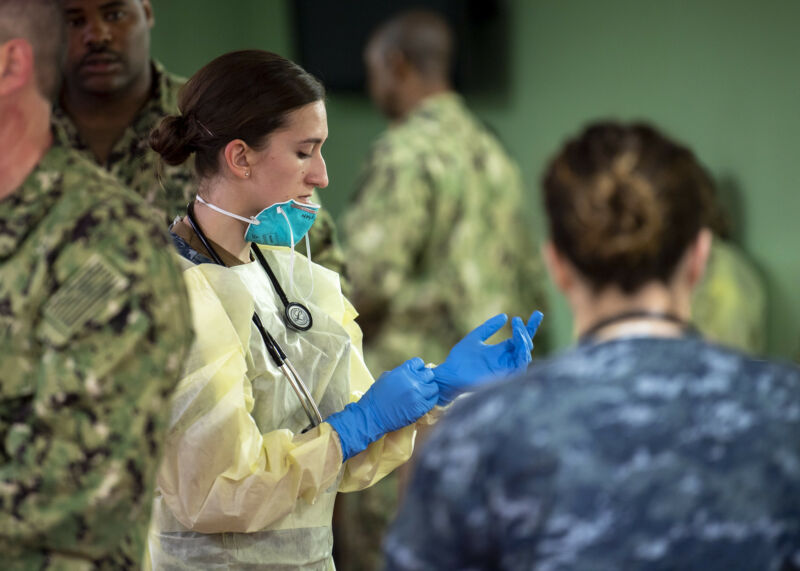
Enlarge / Hospital Corpsman 3rd Class Kimberly Wyss, from Ventura, Calif., dons surgical gloves aboard the hospital ship USNS Mercy (T-AH 19). (credit: flickr)
A study observing COVID-19 patients has found no evidence that the malaria drug hydroxychloroquine, touted as a possible treatment for COVID-19, made a difference to the chance that patients would need a ventilator. The results also suggested that patients treated with hydroxychloroquine had a higher rate of death than those who weren’t treated with the drug.
The study was not a randomized clinical trial, which means that the evidence it offers is tentative and should be interpreted with caution. It was also published on preprint server medRxiv, which means it has not yet been peer-reviewed.
But interpreting the evidence with caution does not mean disregarding it completely. This study is one of a growing number telling us that we don’t yet know enough about hydroxychloroquine, adding more weight to the argument that we need to wait for better-quality evidence from randomized controlled trials before we start widespread use of a drug with significant side effects.
Read 12 remaining paragraphs | Comments
Source: Ars Technica – As more studies roll in, little evidence that hydroxychloroquine works
